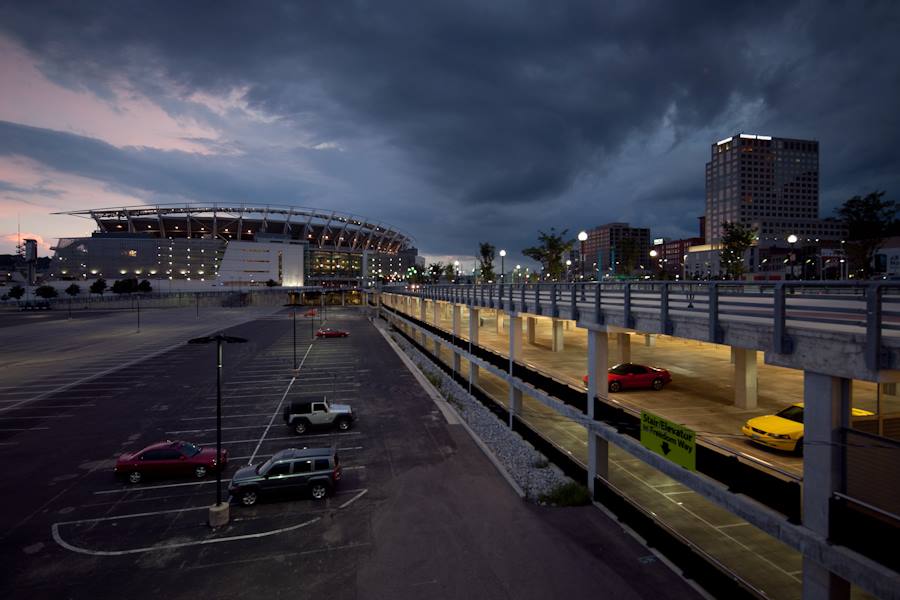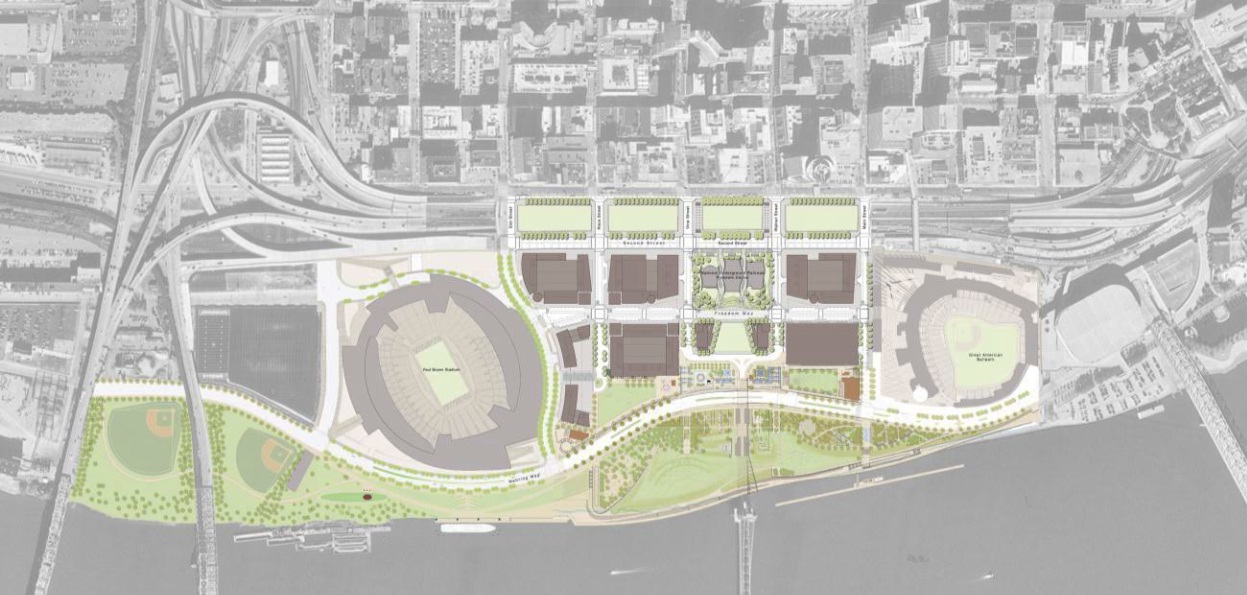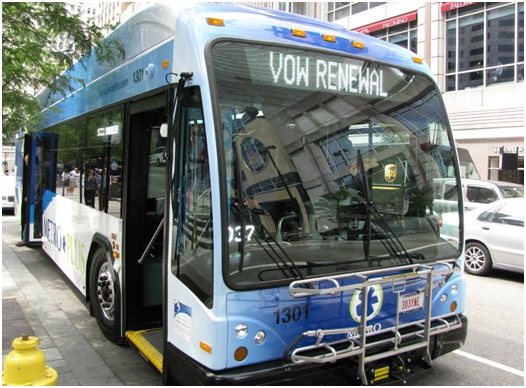Cincinnati Mayor Mark Mallory (D) has approved an amendment to the city’s zoning code that eliminates parking requirements for many residential developments, and substantially reduces them for others.
The ordinance, signed on August 7, tosses out the city’s existing minimum parking requirements within the zoning code’s Downtown Development Overlay Districts, which cover the central business district and historic Over-the-Rhine.
Under the new regulations any residential development with 20 or fewer housing units would not have to provide any parking, while those with more than 20 units would have to provide .75 spaces per housing unit above 20. That means a development with 32 housing units would only need to provide nine parking spaces.

Thousands of parking spaces sit largely empty outside of business hours and game days. Photograph by Jake Mecklenborg for UrbanCincy.
In April 2012, just weeks after UrbanCincy laid the groundwork for reforming the city’s parking policies, Vice Mayor Roxanne Qualls (C) and Councilmembers Yyvette Simpson (D), Wendall Young (D), Cecil Thomas (D), Chris Seelbach (D), and Laure Quinlivan (D) signed a motion urging the removal of all parking requirements in the central business district and Over-the-Rhine.
While the newly approved ordinance does not go quite that far, its proponents believe it is a step in the right direction.
“The goal of the ordinance is to encourage development in the urban core by permitting developers to determine their own parking needs for downtown developments,” explained Councilwoman Simpson, who is vice chair of council’s Livable Communities Committee. “I firmly believe that the market will work to meet parking demands better than government minimum parking requirements.”
According to Victoria Transport Policy Institute, individual parking spaces add anywhere from $10,000 to $25,000 to the cost of a development, and city council believes that by eliminating those mandates that they will make the center city an even more attractive place for private investment.

The Mercer Garage in historic Over-the-Rhine is visible from above in May 2013. Photograph by Jake Mecklenborg for UrbanCincy.
The discussion about parking mandates in the center city has been ongoing for years, and has taken on more prominence as private real estate investment in Over-the-Rhine has surged. UrbanCincy specifically called into question the size of the Mercer Commons parking garage in mid-2012.
The work of eliminating parking requirements, however, may not be finished.
The approved ordinance also calls for the “deregulation of minimum parking requirements in other neighborhoods through the establishment of Urban Parking Overlay Districts in areas to be determined by Council.”
If and when city council decides to move forward with establishing new Urban Parking Overlay Districts, there would be no parking requirements for any use other than residential developments greater than 20 dwelling units. This is slightly different than the modification to the Downtown Development Overlay Districts since they still require some minimal parking requirements for office uses.
One of the earliest beneficiaries of the new standards might be the renovation of 906 Main Street, which would not need to provide any parking spaces under the new standards. The $400,000 project will transform the largely vacant structure into 20 apartments above 6,705 square feet of street-level retail.
The new ordinance took effective immediately.
“This ordinance will encourage private investment by reducing the amount of government regulation,” Simpson continued. “This also encourages a walkable, pedestrian-friendly urban core, which is more attractive to residents and visitors.”









